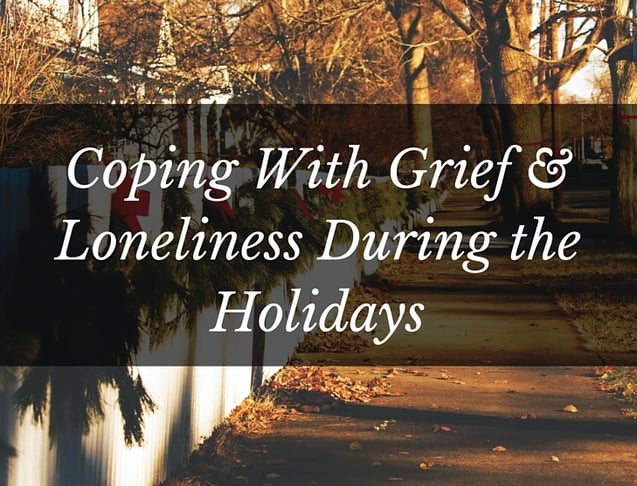
Even vibrant seniors who are deeply committed to living well struggle over the holidays. This festive season can be stressful, and often painful, for older adults who have lost a spouse, child, lifelong friend, in the preceding year. Those in poor health, or with decreased independence and mobility, may dread the exhausting social events where a perpetual smile is expected—genuine or not. For older adults with undiagnosed clinical depression, the emotional burden of the holidays can deepen the chronic sadness and hopelessness they already silently endure. The emotional and social disconnection a lonely person feels predisposes her to numerous physical health challenges. But there are things you can do that can lessen these feelings of grief and loneliness during the holiday season.
Acknowledge the Painful Feelings
Ignoring or denying sadness and grief won’t heal them, but naming them, understanding them, and expressing them might. Be honest with yourself about what you’re feeling, and why. Therapist and author of popular book on emotions, Constructive Wallowing, Tina Gilbertson, reminds us, “Whatever you’re feeling is perfectly okay. There’s no need to make sure your emotions are ‘correct’ given the situation.”
Resist the natural urge to criticize yourself for feeling what you’re feeling. Cry if you need to. Rage a bit into the air or vent into a journal. Your emotions will pass more quickly and free up vital energy. When the intensity subsides, do something luxurious and comforting for yourself: a hot bath, a quiet walk, or a visit to the local coffee shop for a muffin and latte.
Create New Traditions
Longtime holiday customs that are no longer observed due to separation, death, or distance can leave a huge vacuum in your life. Think creatively about how you would like to establish new traditions with deep personal meaning. You might decide your years of tree trimming are over and donate your ornament collection to a local shelter’s tree. Perhaps you’re secretly happy not to cook the big family meal after years on kitchen duty and choose to serve Christmas dinner to the homeless instead.
If you’re far from family, schedule a conference call or a Skype session for opening gifts together.
Book a cruise or a trip to a tropical all-inclusive resort for your annual holiday celebration. Nothing says that living well over the holidays requires staying home.
Choose one close friend and share a special meal at a luxurious restaurant. Make this an annual holiday tradition you look forward to.
Honor Your Loved One
If this is your first holiday season without a loved one, find unique ways to commemorate them. Honor their memory with a special candle or a photographic ornaments or greeting cards with their image. You could even do things that remind you of the good times you shared: prepare a favorite meal, play their favorite holiday music or donate to a cause they supported.
Savor the Small Delights
Find spontaneous joy in the tiny moments of grace: the warmth of a fireplace, the smell of a sumptuous meal cooking, the kind smile from a stranger on the street. These treasures may be fleeting, but for the moment that you relish them, you are outside your grief and enjoying a sliver of contented peace.
Share with a Community of Others Who Relate
Use available group support resources for companionship and empathic understanding from others on the same healing journey. Weekly GriefShare groups help people grieve the death of a family member or friend. DivorceCare groups provide support for those going through separation or divorce.
No matter what challenges you may be experiencing as the holidays approach, you don’t have to face them alone. It’s 100 percent possible to continue living well, even while acknowledging your grief and loneliness. Dedicate yourself to creating new treasured memories and meaningful traditions in this next cycle of life.












